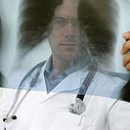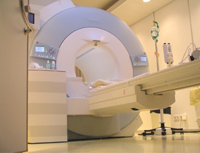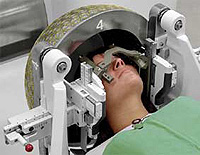Modern medicine has achieved great success in chemotherapy. Most patients have become much less common to develop side effects. The main side effects are nausea, vomiting, hair loss and oppression of the bone marrow function.
Content
Basic side effects
Chemotherapy can cause various side effects, and in the past they were very heavy, and treatment in many cases caused unpleasant emotions and poorly transferred. Now chemotherapy has changed beyond recognition. New drugs cause fewer side effects, and at the same time they are often more effective than old. In addition, much more advanced methods have been developed to relieve and prevent side effects.
To the three most common side effects of drug treatment include nausea and vomiting, hair loss and bone marrow oppression. Nausea and vomiting in the past were the most painful reactions to chemotherapy. One of the most important modern achievements in the treatment - the creation of very effective means against nausea (antiemetic drugs). In many cases, they are able to eliminate nausea, and now there are practically no situations when the patients passing chemotherapy would suffer with an indomitable nausea or vomiting. Since chemotherapeutic agents also have become better and often cause less unpleasant sensations, many patients pass the entire course of chemotherapy, not suffering from nausea or vomiting.
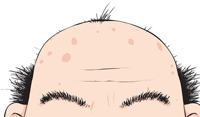 Hair loss is observed when applying some, but not all chemotherapeutic drugs. It may be no more than minor loss or thinning of hair, but sometimes complete baldness occurs, and not only on the head, but also on the rest of the body. Such a reaction is a very painful aspect of treatment, since the patient is difficult to adapt to such a change in appearance, which, among other things, may probably be perceived as a very bright external manifestation of the disease. Many people wear wigs or cover head scarf or hat. Loss of hair is only a temporary phenomenon, and immediately after the end of treatment, they always grow with conventional speed.
Hair loss is observed when applying some, but not all chemotherapeutic drugs. It may be no more than minor loss or thinning of hair, but sometimes complete baldness occurs, and not only on the head, but also on the rest of the body. Such a reaction is a very painful aspect of treatment, since the patient is difficult to adapt to such a change in appearance, which, among other things, may probably be perceived as a very bright external manifestation of the disease. Many people wear wigs or cover head scarf or hat. Loss of hair is only a temporary phenomenon, and immediately after the end of treatment, they always grow with conventional speed.
The impact on the bone marrow is due to the fact that its cells are especially sensitive to chemotherapeutic drugs. Bone marrow produces blood components - red blood cells, leukocytes and platelets. When the number of these cells is reduced as a result of damage under the action of cytotoxic agents, a number of side effects may occur:
- Feeling fatigue and weakness as a consequence of anemia caused by erythrocyte deficiency
- susceptibility to infections due to low levels of leukocytes
- bleeding and hematomas as a result of platelet lack
All of these side effects can be largely monitored, so in the course of drug treatment, blood tests should be carried out regularly in order to test the levels of these cells, as well as identifying and treating certain violations. Anemia is treated by blood transfusion. If the levels of leukocytes are low or it seems likely to increase their quantity, you can resort to injections of growth factors. Platelet transfusion (similar blood transfusion, but in this case we are talking about alone platelets) can be made at low levels of these cells. Now the development of new growth factors of platelets for the treatment and prevention of bleeding due to their low content.
Other consequences of chemotherapy
Diarrhea is often observed when applying some, but not all chemotherapeutic drugs. It can be easily and effectively treated with ordinary drugs selling in a pharmacy. With a severe form of diarrhea, it is possible to suspend chemotherapy for a while or reduce the dose of the chemotherapeutic preparation, while the diarrhea does not stop.
Some chemotherapeutic agents can affect male fertility, reducing the amount of sperm in seed fluid and leading to infertility, which is sometimes constant. Chemotherapy can also affect women's ovulation, leading to temporary and constant infertility. Before the start of drug treatment, it should be discussed with the doctor related to the fertility issues so that preventive measures can be taken.
Men can offer conservation of sperm involving storing their seed fluid in the frozen state in case they plan to have children in the future. Storage of female eggs is currently subject to experimental research and may well be possible. People suffering from infertility as a result of treatment, consulting and moral support is needed to help them reconcile with their condition. Women in which treatment causes constant menopause, can be carried out by replacement hormone therapy for the weakening of symptoms that can be very severe.
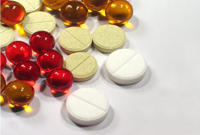 There are no reason to failure from sexual life during drug treatment, although due to other side effects, the health of the patients may not be good enough for this. Since the effect of chemotherapy for fertility is somewhat vaguely and unpredictable, it is recommended to always resort to a particular contraceptive in the treatment process and some time after its end, regardless of whether it is conducted from the partners because during this period there is a possibility of conception. Men undergoing chemotherapy should think about the use of condoms, because women sometimes complain about the sperm of acute pain and burning sensation.
There are no reason to failure from sexual life during drug treatment, although due to other side effects, the health of the patients may not be good enough for this. Since the effect of chemotherapy for fertility is somewhat vaguely and unpredictable, it is recommended to always resort to a particular contraceptive in the treatment process and some time after its end, regardless of whether it is conducted from the partners because during this period there is a possibility of conception. Men undergoing chemotherapy should think about the use of condoms, because women sometimes complain about the sperm of acute pain and burning sensation.
Thanks to the achievements of recent years associated with the quality of drugs themselves, methods of their introduction and ways to relieve or prevent side effects, chemotherapy has become much less painful than it was 10 years ago. Now doctors often have to hear that the patients transfer it much easier than expected. Nevertheless, it still causes unpleasant emotions and strong anxiety, so many people need support from their families and friends who would help them cope with problems and maintain a positive attitude towards what is a kind of marathon distance in the process Treatment.
Currently, numerous scientific research and clinical trials are continuously conducted on the creation of more advanced chemotherapy methods. The most striking results were obtained in studies on the development of effective methods of combining chemotherapy with other types of treatment, such as radiotherapy and surgical interventions aimed at cure or extending life in situations in which it would be impossible.


